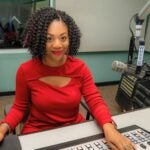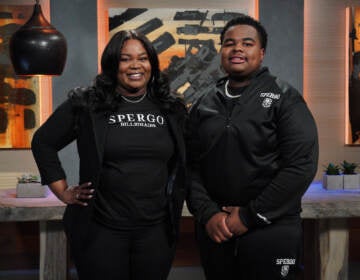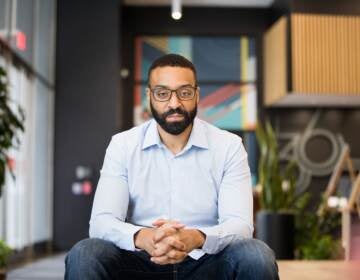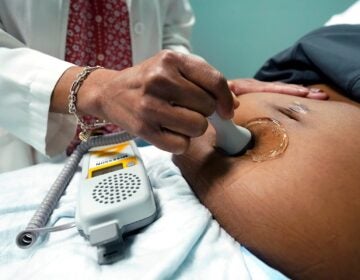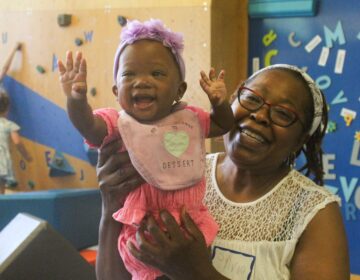Podcast by Black women medical professionals explores infertility, maternal health
The hosts are Sinora Allwood, RN, a holistic health nurse and health coach, and Dr. Jillian Lucas Baker, executive director of the Center of Parent and Teen Communication.
Listen 7:30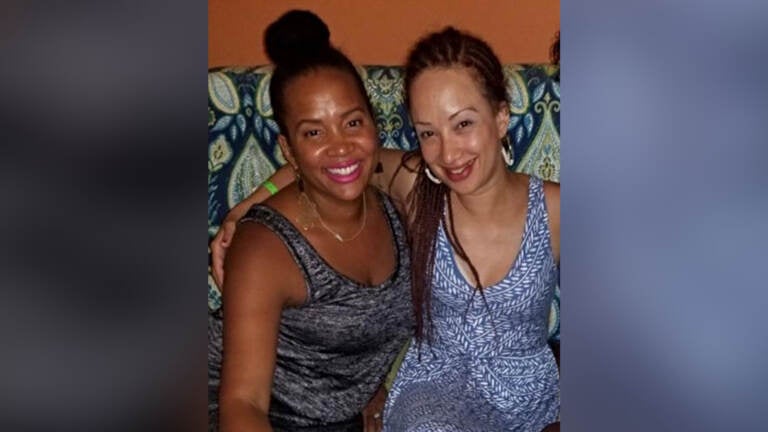
Sinora Allwood, RN and Dr Jillian Lucas Baker have been friends for decades. Neither knew that the other was struggling in silence with infertility. Once they discovered their mutual secret- they started the podcast, ''A Tribe Called Fertility.''
African American women are three times more likely than white women to die of complications from childbirth, and they are twice as likely as white women to suffer from infertility. Both subjects are rarely discussed within Black women’s circles, but two dynamic women are hoping to shift those statistics by providing community and education.
A Tribe Called Fertility is a new podcast that shares information and conversations about Black families, maternal health, and experiences around fertility. The hosts are Sinora Allwood, RN, a holistic health nurse and health coach, and Dr. Jillian Lucas Baker, executive director of the Center of Parent and Teen Communication at the Children’s Hospital of Philadelphia. They are friends who grew up together in the Bronx and discovered that they each had a secret battle. That discovery lead to the creation of A Tribe Called Fertility.
WHYY afternoon drive host, Cherri Gregg, sat down with the hosts to find out more about why they created their podcast.
—
Ladies, welcome.
Dr. Jillian Lucas Baker [JLB]: Thank you for having us.
Sinora Allwood [SN]: Thank you!
So, so you both grew up together in the Bronx and have been friends since, like seventh grade. But as grown women now did not know that you shared a common issue. Please explain the origin story of A Tribe Called Fertility.
JLB: Sinora, you want to start?
SA: Well, yes. So we grew up together and never knew that both of us were dealing with infertility until we reconnected in Jamaica three years ago, for Jill’s 40th birthday. It was just so crazy because we were like, gosh, we talk. We, you know, we share things about our families. But we had no idea that we both were struggling with infertility because we were both dealing with, like the shame and stigma of it all, you know, and here we could have been each other’s support.
Why do you think so many women, specifically Black women, don’t share this?
JLB: The shame is number one. I think you feel as a Black woman you should be able to get pregnant when you want. In our culture, there is, you know, the stereotype that Black women are hyper-fertile and that we’re hypersexual. So I think with those two kind of arcs playing out in the lives of Black women, this is one of the reasons why when you’re struggling with not being able to have a baby, you don’t tell anybody, you keep it to yourself because you really are alone, because not enough of us are coming out and sharing and saying, you know, “I went through infertility, too.”
So, Sinora, tell a little bit about your personal story and then I have Jill share a little bit of hers.
SA: For me, I was diagnosed with unexplained infertility. I was dealing with not being able to conceive for a period of at least three years and after sonograms, ultrasounds, a hysterosalpingogram — which is very painful — I was fine. There was no real physical reason why I couldn’t have a baby, but I just couldn’t have a baby. And so for me, I was just like, crushed. You know what I mean? Because I’m like, if I found something was wrong, maybe if my tube was blocked, they could unblock it, or they could perform a surgery. There was like nothing, and we were about to start IVF [in vitro fertilization]. And so I did some research and found that if you do a whole, like a kind of like a holistic body cleansing, it can increase your chances for a successful round of IVF. So we did that and we actually were able to conceive on our own. Thank God, and we can conceived our son, Noah, who is now seven years old.
JLB: Our journey started 12 years ago because it took us two years to get successfully pregnant. And we started and later I started around thirty-one. I was trying to wait until I finished my doctoral program at Drexel, and I was at the last semester or so and I was like, “All right, let’s try to start having a baby now.” And so we just went to start it, having unprotected intercourse, thinking it was going to happen. And then six months later, no. And for our age, if you’re younger than thirty-five, the doctors will say, do a year of unprotected intercourse. If you don’t get pregnant, then go back, go to a specialist. And so that is what we did. We had to go through, you know, a number of, as Sinora said, the invasive testing. For us, it was just it was just a timing issue. We started off with Clomid and then we did IUI [intrauterine insemination]. Crazily, we ended up getting pregnant on our wedding anniversary and then we found out that they were twins.
People go through that, that struggle not knowing what to do. And you could have probably helped Sonora.
SA: Even just having someone to talk to, because it was just so alienating and isolating. And when I would gather up the strength to say something to someone like I often talk about talking to my mom and my aunties, they would often dismiss it, like, “Girl, ain’t nothing wrong with you. Just get on your knees and pray.”
JLB: They didn’t go through infertility. I remember talking to my dad before he passed and I was like, “Yeah, it took two years for me and Gamal to get pregnant. He was like, “Oh, it wasn’t that bad, was it?” I was like, “No daddy, it was horrible!” And so for us, when we discovered like, “Oh wow, we had the same experience,” then we were like, “Okay, we know that there are other Black women who are suffering, who need help and a community.”
And so A Tribe Called Fertility was born. And what type of topics do you cover?
SA: Everything. Loss. We talk about this experience, trying to conceive. We talk about pregnancy. We talk about C-sections. We talk about mental health. It’s a huge part of it for us.
JLB: It’s very important also, as Black women, to just normalize mental health. Sinora and I both also had postpartum [depression] and so we were like, “Okay, we’re going to talk about that on the show, too.”
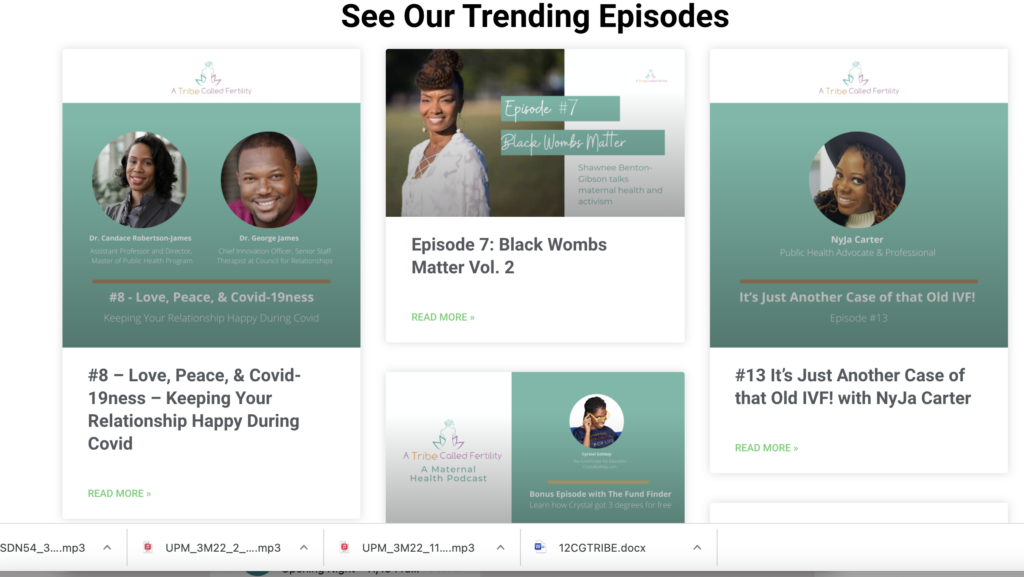
And both of you have experience in the area of health care. You understand the systems, you know the data, research. Your experience, I’m sure, helps guide the discussion here.
JLB: Oh yeah, because I think one of the reasons for our success — it’s just been one season — is because it’s so real. We’re not making this stuff up. And we really struggled in the beginning of the show, trying to find our voice, and we were just like, “All right, we just have to be ourselves.” We are from the Bronx. That’s another reason why, you know, it’s “A Tribe Called Fertility.” We’re both hip-hop heads. People don’t know. Every episode is a hip-hop title that we have switched around.
What do you hope that the women who listen to your podcast, what do you hope they take from it?
SA: I think I hope that they become educated. I know one thing I felt while dealing with infertility is I felt powerlessness. But the more I learned, the less I felt powerless, the more I felt in control of my situation. So I definitely want Black women and Black families to feel power. I want them to advocate for themselves. We need to all be more informed as a community so that we can comfort each other as a community.
Sinora Allwood and Dr. Jillian Lucas Baker, thank you so much.
JLB: Thank you. Thank you.
SA: Thank you for having us.
You can find “A Tribe called Fertility,” the podcast, wherever you find your pods.

Get daily updates from WHYY News!
WHYY is your source for fact-based, in-depth journalism and information. As a nonprofit organization, we rely on financial support from readers like you. Please give today.


